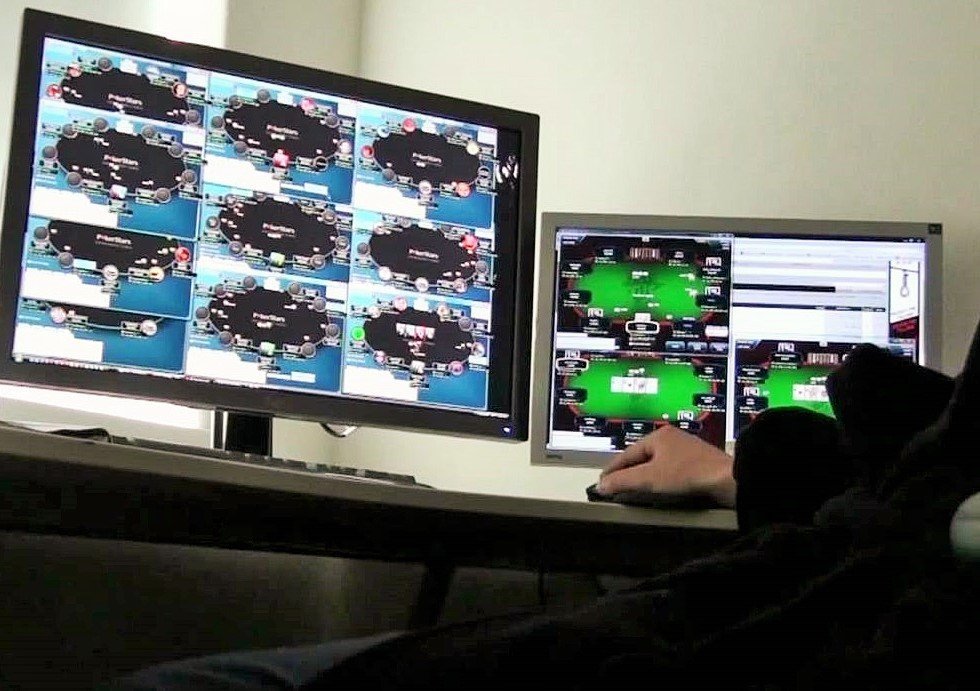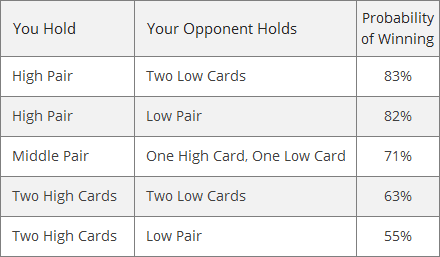It’s difficult to know where to start once you set your heart on taking poker seriously and attempt to earn an income from it. In this article, we will not seek to inform you how to play certain hands or situations, and we can’t provide you with a simple recipe for success. What we can give you though, is a list of poker skills that are extremely important and will pave the way for you to be successful.
If you don’t already have these qualities, do not feel that you are destined to fail. The correct mindset can be learned, and mistakes can be unlearned.

Poker Skill #1: Focusing for many hours
It has been said that 10,000 hours of practice are needed for a person to master their craft, and when it comes to poker – that’s just the beginning. Accepted wisdom on the best play in certain scenarii evolves with time, and your game must as well. Be consistent in the hours you put in, and be aware of any drop off in concentration levels, and how it may affect your decision making.
It’s also important to put in the hours for other reasons too. With only a limited number of sessions or tournament results under your belt, you won’t have a clear picture of your skill level based on those results. You might run above expectancy and feel like you don’t need to work as hard, or you may run below expectancy and lose confidence and motivation. Don’t read too much into your results until you know you have some serious data to reflect on.
Poker is about details. Early on, you can make big strides in progress by mastering core concepts, while not paying attention to the very small details that can improve your game by fractions. As you become more skilled, those small details become your best source of improvement.
If you have a strong desire to be exceptional at poker, it is likely that you will go through a phase of putting in a huge number of hours on a consistent basis. While you may risk burning yourself out, there’s nothing wrong with showing huge commitment to the game. Many pros have walked that same path before eventually finding a more comfortable balance.
Poker Skill #2: Mathematics and logic
Mathematics have always been at the root of poker. There’s no getting around that fact. The good news is that you don’t have to know at the beginning how to solve complex equations, but you must familiarise yourself with frequently occurring situations and how their pot odds and equities affect your decisions.
In order to be a great player, you have to be able to assimilate the mathematical factors in a decision and calculate them competently and swiftly; particularly if you plan to multi table. If you are struggling with the maths and making judgments purely on feel, you will be starting with a serious handicap.

Poker Skill #3: Competitive Spirit
You need to have the motivation and the confidence to keep pushing yourself on to better things. Look at ways to keep your work rate high, even through periods of bad variance. There are many top pros in the poker world who came from a background of highly competitive sports or games. If you don’t have that competitive instinct within you, it becomes difficult to maintain your motivation.
Poker Skill #4: Emotional management
Emotional management has been cited countless times as a key factor in becoming great at poker. There is a reason for that. It’s importance cannot be overstated. You can easily spend a few hours making good decisions and creating a profit margin for yourself, only to wipe it out with 5 minutes of frustrated thoughtless play. This is a very easy mistake to make.
Life is one long poker session, and what you can do while playing at your best becomes completely obsolete if you can’t keep it together when bad variance hits. It’s fine to fold a few marginal hands you might otherwise have played, or end a session early if you feel emotion levels rising. But, allowing anger to govern decisions, even for a short while, can be catastrophic. Ego is another emotional issue that can creep up on you. Always remember that no matter how good you think you are, you’ll almost certainly look back in a year and realise how much you had left to learn.
Poker Skill #5: Motivation and being passionate about improving
Concentrating on how much money you are making can be a fast way to drive yourself crazy and generate emotional problems in your game. The greatest players in the world can play high quality poker for tens of thousands of hands and break even. Your motivation has to be on decisions, and examining every possible way to make better ones. If you have that mindset, you’ll be able to smile at the end of a losing session if you know you played great, or work hard on your hand history after a winning session because you know that there were mistakes in there.
Keep your attention on the right problems. Not making money isn’t a problem – not making good decisions is. Keep that in mind and the money will eventually follow.
Poker Skill #6: Create and maintain an efficient social poker network
In any professional working environment, teamwork has a positive effect on results. This doesn’t mean working together at the table of course, but the sharing of ideas. It’s easy to find yourself stuck in a cycle of looking at a strategic problem from the wrong angle. If you have a friend who can give you a second opinion, it can really speed up the learning process.
Bankroll management also deserves a mention here, because players often reduce the swings in formats such as tournament play by staking or swapping percentages of each others action. Having a good friendship group can also get you more invites to juicy home games too.
The great talent that is Fedor Holz may never have emerged if not for the healthy ecosystem of young professional players in Germany.

Poker Skill #7: Bankroll Management
Another one that you will hear many times is bankroll management. This is so important for long-term poker success. In many instances players don’t really understand what a serious downswing is until they experience one. It’s always much worse than you expect, and if you are not properly rolled, you could end up completely broke. The impact that will have upon your ability to earn money thereafter is obvious.
The constant desire to play above what your bankroll allows is normally indicative of a deeper problem such as ego, or perhaps focusing on money rather than making good decisions.
Conclusion
You don’t need to have all these qualities mastered in order to be a profitable poker player, but if you want to become great, then at the very least you need to have a willingness to keep working at them. Use your strengths, and work on your weaknesses. Don’t allow yourself to consistently fail at any of these, otherwise you will ensure that you never reach your true potential.
Above all else, enjoy the journey.
Article by Craig Bradshaw



